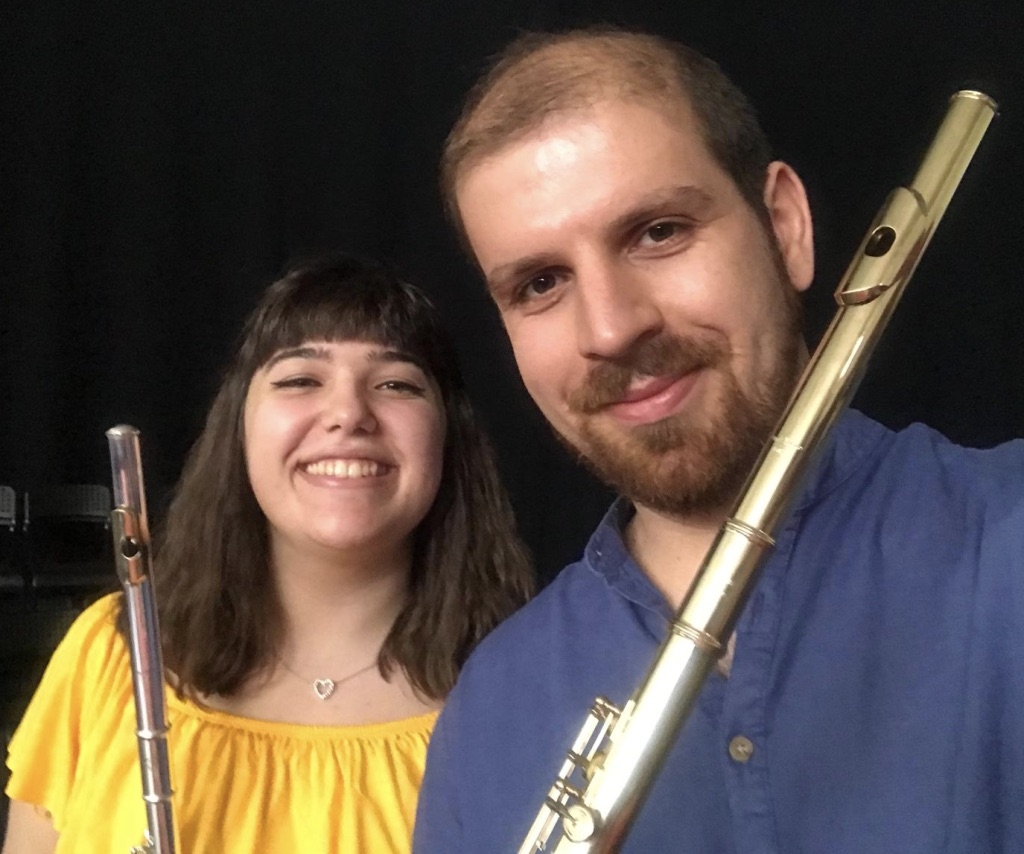As the school year draws to a close, we all yearn to be successfully moving on, don’t we? As in, DONE! Off to the beach or whatever is next.
Alas, this yearning leaves us in danger of falling prey to… THE SEDUCTIVE PULL OF END-GAINING! (#theseductivepullofendgaining… you saw it here first).
Both teachers and students are looking for the quickest way to resolve any remaining issues—like, before exams! The quickest, easiest, most painless way to dispatch “the thing”. And I’m afraid this leaves us in bocca di lupo…but only in the literal sense: “in the mouth of the wolf”, the wolf being the dreaded END-GAINING!
(Those amazing, crazy Italians, they say in bocca di lupo to wish someone good luck…huh?)
But WHAT, pray tell, is “END-GAINING”?
End-gaining is a word coined by F. M. Alexander to describe going directly for a desired result, or “end”, without taking the necessary steps that would lead you there. Examples:
— Trying to play a fast passage at speed without studying it first;
— Listening to a recording to see “how a piece goes”;
— Telling your student “how a piece goes”;
— Learning a piece by X without listening to any other music by X;
— A teenager smoking to look “mature”;
— A politician against “green” policies because it’s “bad for the economy”.
— To close the list in style: an archetypical expample mentioned by an especially witty friend: “Ready! Fire! Aim!”
These may seem ridiculous, but believe me, not only have I seen all of them but I’ve done the first three or four, many times. A lovely and brilliant student once came to me and asked how to “get” the fast bits in the Reinecke “Undine” Sonata. I asked how she’d been practicing those passages, and she said “oh, I haven’t practiced them!”… and, well, a revelation was had by both parties! (She’s a judge now). This is an extreme example, but how many times have any of us just kept trying to play a fast passage using the same tactic, getting nowhere, and learning wrong notes to boot?
There are other, more subtle forms of end-gaining, We want a beautiful sound; we want to be able to finesse dynamic changes; we want excellent “technique”…but we don’t want to simply experiment to see what works and what doesn’t, and then consciously move step by step toward mastery.
In fact, it is the overwhelming desire to do the thing that trips us up! We want to make a big diminuendo (crescendo, legato interval, sforzato attack, fast run…) and go into all sorts of contortions in the hope that it happens. Only, many times, those very contortions—be they obvious or discreet—are themselves the impediment to our success.
I remember a day many years ago when I first had a glimmer of this: I was trying to do something rather unnatural on the flute, probably a big diminuendo on two slurred notes going up. A crescendo going up is far easier, far more natural.
I was tying myself up in knots, almost literally, when I finally stopped and considered what had to happen for the diminuendo to occur: air speed: faster, angle of air column: more horizontal, aperture of lips: narrower. A+B+C= success, as long as I also DIDN’T do (the famous DO NOTHING of Zen!) X, Y, or Z. Meaning, do nothing EXCEPT A+B+C. Worked like a charm. Still does. (This non-doing is a whole ‘nother can of worms…)
And it blew my mind!
All my desiring to be able to do that kind of diminuendo led me nowhere except contortion-ville. But ten minutes or so of close examination and another ten of testing brought me peace of mind ever after. Since that day, I have been fast friends even with Brahms, and even his 2nd Symphony—third octave La-Mi-Fa-Do…yikes!
Lemme repeat this: the things I did BECAUSE I wanted to reach a particular goal IMPEDED my reaching that goal. Because my focus was on the goal and not the steps by which I might reach the goal. The irony is that the end-gaining not only didn’t gain me the end I so desired, but it was slow! (Naturally, if you run quickly in the wrong direction, you don’t arrive sooner!) Whereas side-tracking to observe and experiment with the steps, the “means whereby”, turned out to be quick!
This is just one example, but in music—and life—we have endless desires that tempt us to end-gain. We want to look slimmer (more fit, healthier!) so we wear heels…and wreck our feet. We want to arrive earlier so we speed on the highway (and get a ticket or worse).
Exams provoke other sets of desires: the student wants a good grade—which is out of his or her control. The teacher wants their students to do well—which is also out of his or her direct control.
The solution I suggest, for those who must play exams, is to keep on taking the steps along the way and consider the exam a recital, just one of many “snapshots” of your playing as you continue to develop musically.
Because once you finish taking exams and all the grading nonsense stops, hopefully, your development will continue. The fact that we’re never “done” is one of the great gifts of art to the artist; it pushes us, and art, forward.
To be truly “done”…is to die a tiny bit. To be momentarily “done”, however, definitely earns us a trip to the beach!






